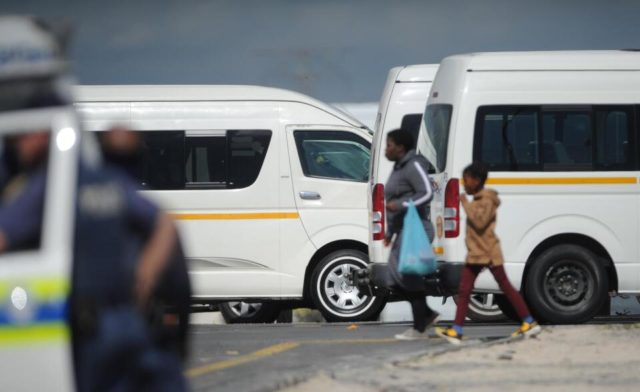Three of the country’s biggest trade union federations are planning on protesting from next month over the woeful public transport system, after getting the green light from the National Economic Development and Labour Council (Nedlac).
THREE of the country’s biggest trade union federations are planning on protesting from next month over the woeful public transport system, after getting the green light from the National Economic Development and Labour Council (Nedlac).
Cosatu, the Federation of Unions of SA (Fedusa) and the National Council of Trade Unions (Nactu) complained to Nedlac in July about the unilateral decision by the taxi industry to load 100% capacity in its vehicles despite the Covid-19 pandemic.
The federations are also unhappy with the lack of integration between the different modes of public transport, mismanagement, lack of safety at railway stations and an incoherently co-ordinated public transport system.
Nedlac this week indicated that because the matter could not be resolved, Cosatu, Fedusa and Nactu can go on strike and that such action will be protected.
Lisa Seftel, Nedlac’s executive director, declared that its section 77 of the Labour Relations Act (LRA) standing committee agreed that the matters raised by Cosatu, Fedusa and Nactu could not be resolved. “Therefore, on September 15, 2020 the standing committee deemed this Section 77 (1) (b) notice by Cosatu, Fedusa and Nactu as having been considered. Any protest action arising from this notice would be protected,” Seftel said.
Section 77 of the LRA allows workers to protest to defend or protect their socio-economic interests.
Nedlac’s standing committee accepted the federations’ issues were unresolved including the reduction of loading capacity in public transport from 100% to 70% and that insufficient evidence had been provided to motivate that it was safe to move from 70% to 100%.
It also found that a violence avoidance plan, which was to be presented by the SAPS to remove the danger of violence erupting on routes as the number of commuters declined due to Covid-19, lacked the necessary details.
Last month, Cosatu’s central executive committee resolved to mobilise for a general strike to force the government to act against corruption on October 7, World Day for Decent Work, which has been organised by the world’s largest trade union federation, the International Trade Union Confederation.
Cosatu spokesperson Sizwe Pamla told Independent Media yesterday that the October 7 strike action will be protected and no worker can be victimised or punished for participating.
He said the strike was also in response to the government and business’ failure to address a number of workers’ concerns including failing to enforce social distancing in taxis and other health and safety measures as well as high levels of crime in the transport sector, trains or taxis, and the complete collapse of MetroRail and government’s neglect of public transport.
“Workers will raise other matters of critical importance during our strike. These include the need for the state to decisively tackle corruption, to grow the economy and create jobs, to tackle our high levels of crime and gender-based violence,” Pamla said.
Workers are also demanding workplaces where their health and safety is guaranteed and their lives and health are not sacrificed for the sake of profits, according to Pamla.
“We’ve received overwhelming support for it, not only from our own members and ordinary workers but also other trade union federations, churches and civil society organisations,” he said.
Nactu general secretary Narius Moloto said the federation supported Cosatu’s action as corruption was destroying everything in the country and nothing was working including infrastructure and security.
However, Moloto said Nactu members would not be protected should they participate as its central committee has not yet decided to apply at Nedlac for a date to protest.
“We can come up with our own application at a later date,” he said.
In its response to Nedlac, the Department of Transport said the majority of the federations’ demands were in the process of being addressed.
The department indicated that the decision to allow 100% loading capacity was taken after extensive consultations and that further engagements are expected at next month’s taxi lekgotla.
It also said it was open to distributing all relevant information to the three federations.








